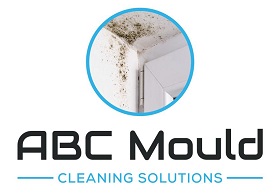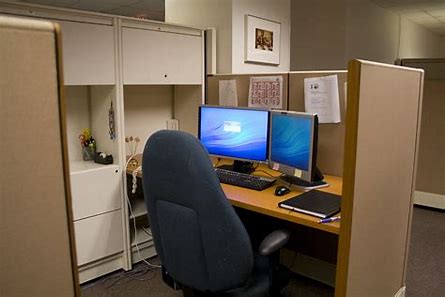Essential Spring Mould Prevention Tips for Sydney Offices
Spring in Sydney brings warmer weather, blooming flowers, and unfortunately, increased humidity levels that can lead to mould growth. For business owners, maintaining a healthy work environment is essential, not only for the well-being of employees but also for the productivity and reputation of the business. Ensuring your office is mould-free during the spring season is crucial to avoid potential health risks and damage to your property. Let’s explore how mould can impact your workplace, the areas most at risk, and the steps you can take to prevent it.
How Can Mould Affect Your Workplace?
Mould isn’t just an unsightly problem; it can have serious consequences for your Sydney workplace. Mould spores, when inhaled, can cause various health issues ranging from mild allergic reactions to severe respiratory problems. Common symptoms include sneezing, coughing, nasal congestion, and skin irritation. For individuals with asthma or weakened immune systems, mould exposure can exacerbate their conditions, leading to more severe health complications.
In addition to health risks, mould can also affect your business operations in Sydney. A mould-infested workplace can lead to increased sick days, reduced employee productivity, and even potential legal liabilities if employees become ill due to poor indoor air quality. Furthermore, mould can damage office equipment, furniture, and the building structure itself, leading to costly repairs and replacements in your Sydney office.
Which Areas in Your Office Are Most at Risk for Mould?
Mould thrives in environments where there is moisture and poor ventilation, making certain areas of your office more susceptible to mould growth. Identifying these high-risk areas is the first step in preventing mould from taking hold.
Bathrooms
Office bathrooms are one of the most common places for mould to develop due to the constant presence of moisture. Leaky faucets, damp surfaces, and insufficient ventilation can create the perfect breeding ground for mould. Regular cleaning and maintenance are essential to keep these areas mould-free.
Kitchens and Break Rooms
Kitchens and break rooms, where food is prepared and consumed, are also at risk. Spills, leaks, and humidity from cooking appliances can contribute to mould growth, especially in areas that aren’t regularly cleaned or inspected. Ensure that these spaces are well-ventilated and cleaned daily.
HVAC Systems
Heating, ventilation, and air conditioning (HVAC) systems can harbour mould if not properly maintained. Mould can grow in ducts, filters, and other components, spreading spores throughout the office whenever the system is in use. Regular inspection and cleaning of the HVAC system are crucial to prevent mould from circulating in the air.
Storage Areas
Storage rooms, particularly those in basements or areas with little air circulation, are prone to mould growth. These spaces often contain cardboard boxes, paper, and other materials that can absorb moisture and provide a food source for mould. Keep storage areas dry, well-ventilated, and organised to reduce the risk of mould.
Windows and Window Sills
Condensation can build up on windows, especially during the transition from cooler to warmer weather in spring. This moisture can lead to mould growth on window sills, frames, and even the surrounding walls. Regularly wipe down windows and check for any signs of mould.
What Can Businesses Do to Prevent Mould in the Office?
Preventing mould in your office requires a proactive approach, combining regular maintenance with practical steps to control moisture and humidity levels. Here are some key strategies businesses can implement to keep their offices mould-free during spring:
Maintain Proper Ventilation
Ensure that all areas of the office, especially bathrooms, kitchens, and storage rooms, are well-ventilated. Use exhaust fans, open windows when possible, and consider installing dehumidifiers in areas prone to high humidity.
Fix Leaks and Moisture Problems Promptly
Leaks from pipes, roofs, or windows should be repaired as soon as they are detected. Even small leaks can lead to significant mould problems if left unaddressed. Regularly inspect the office for any signs of water damage or dampness.
Keep Surfaces Dry
Encourage employees to wipe down surfaces after use, particularly in bathrooms and kitchens. Providing paper towels or microfiber cloths can make it easier for staff to keep surfaces dry and mould-free.
Regular Cleaning
Implement a cleaning schedule that includes regular dusting, vacuuming, and disinfecting of high-risk areas. Pay special attention to areas where moisture is likely to accumulate, such as under sinks, around windows, and in storage rooms.
Use Mould-Resistant Materials
If your office is undergoing renovations or repairs, consider using mould-resistant materials, such as mould-resistant drywall or paint. These materials can help reduce the risk of mould growth in the future.
How Can Employee Awareness Help in Mould Prevention?
Employee awareness and involvement are key components in preventing mould in the workplace. Educating your staff about the importance of mould prevention and the signs of mould growth can help catch potential problems early before they escalate.
Provide Training
Offer training sessions to employees on how to identify signs of mould, such as musty odours, discolouration on walls or ceilings, and persistent dampness. Teach them the importance of reporting any moisture issues or mould sightings to the appropriate personnel.
Encourage Good Habits
Encourage employees to maintain clean and dry workspaces. Simple habits, like cleaning up spills immediately, ensuring personal items are stored properly, and avoiding clutter, can go a long way in preventing mould.
Promote Ventilation
Remind employees to open windows or use fans to improve air circulation in their work areas, especially after rain or in rooms that tend to get humid. Proper ventilation is one of the most effective ways to prevent mould growth.
Why Are Professional Mould Inspections Important for Businesses?
While regular cleaning and maintenance can prevent mould, a professional inspection provides an extra layer of protection. Professional mould inspectors have the expertise and equipment to detect mould in hidden or hard-to-reach areas that might not be visible during routine office checks.
A professional inspection can identify potential problem areas and offer solutions tailored to your specific office environment. For example, they may recommend changes to your HVAC system, suggest moisture control measures, or advise on necessary repairs to prevent future mould growth.
Professional mould removal services are essential if mould is already present in your office. They ensure that the mould is thoroughly removed, preventing it from spreading or returning. Moreover, a professional inspection can provide peace of mind, knowing that your office is safe and healthy for employees and clients alike.
Prioritising Mould Prevention in Your Sydney Office
Maintaining a mould-free office is essential for the health and productivity of your employees and the overall success of your business. By taking proactive steps to prevent mould, such as regular cleaning, proper ventilation, and prompt repair of leaks, you can protect your workplace from the harmful effects of mould. Employee awareness and professional inspections further enhance your mould prevention strategy, ensuring that your office remains a safe and healthy environment throughout the spring season and beyond. Consider enlisting the expertise of ABC Mould Cleaning Solutions to conduct a thorough mould inspection and provide professional guidance tailored to your office’s needs. With the right approach, your Sydney office can stay mould-free, allowing your business to thrive in a healthy and productive environment.

